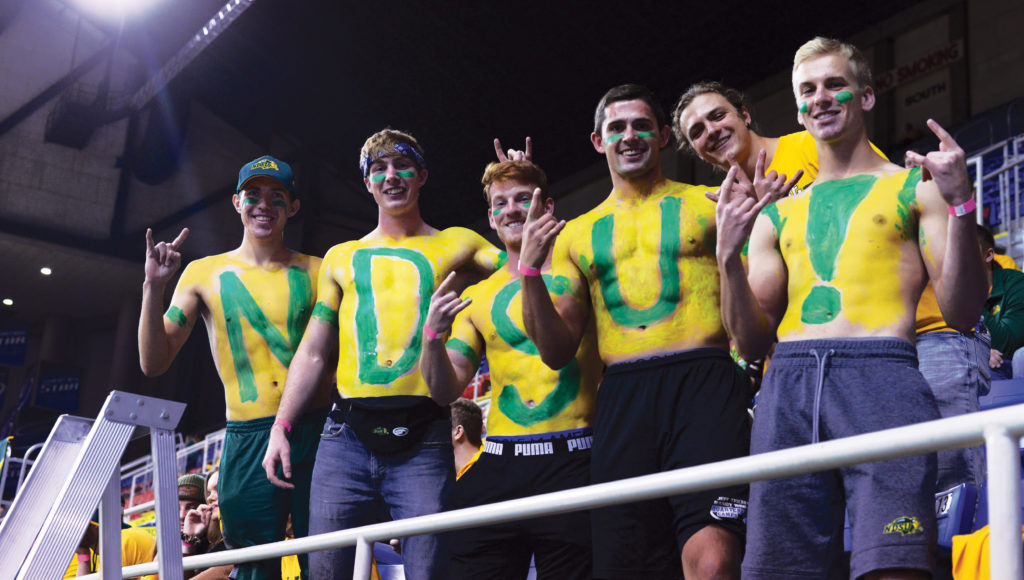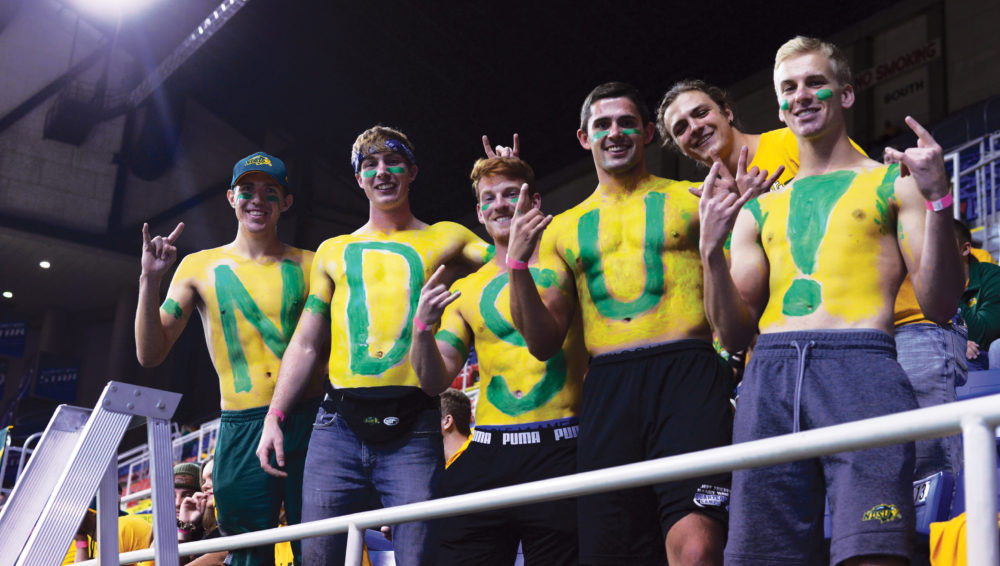How about putting more on the line for student fans?

Students leaving games early or not showing up at all has been a long-standing problem at NDSU.
North Dakota State has an issue with student fans leaving early, that comes as no surprise.
What was surprising however was the location of such an issue over the past weekend.
The Bison volleyball home opener featured a pretty packed Bentson Bunker Fieldhouse for the game against Cal. Even the students showed up, as it was Res Hall night.
And yet, despite a very intense outing by the home team that included narrowly taking the first set, some students started leaving after the second set.
Sure, realistically speaking, the expectation of a Bison win would have been slightly foolhardy, considering the Pac-12 opposition that came into the game with a 7-0 record on the year. But still, outside of allowing a 9-0 run in the second set, the Bison looked up to the task. So why leave early?
Given, it was not a huge swath of students that left, but it was still a considerable amount given the 1,166 fans in attendance.
As the match wore on, more and more students left, and the energy at BBF left with it.
Similar stories can be seen at Bison football games, where at least the game isn’t in question. But the question we should be asking is if there is a solution to this problem?
The simple solution is to have students pay for tickets. However, while the athletic department will probably like the extra income (even if the university would have to roll back some student fees to all students to make this work), there is a distinct possibility that students would still leave.
The Bison game against Butler at Target Field is a good example, as there was a steady stream of fans leaving early. All fans at that game had to purchase tickets.
So, at this point, lets head to the University of Alabama. The New York Times ran an interesting article about rewards app used by students at football games.
‘Bama students have long drawn the ire of head coach Nick Saban for leaving games early. This comes in part because they blow out most teams, especially non-conference foes. Sound familiar?
To quell the problem, the students with the rewards app get points that they can use for priority to big games, by staying through the third quarter of football games.
This does however run into the Orwellian problem of the whole tracking students through an app, and that is a discussion for another time and place.
Feel free to read the Times piece for more details on how it all works.
But let’s stick to the basic premise here, students get points to go to sporting events, and then they get priority to big ticket events. At its core, that is a good idea.
Enter the now dead Bison Rewards app. Developed a couple of years ago, the app rewarded students with points for going to sporting events. Those points were redeemed for sunglass, shirts and other items. It had it fair share of issues, but the thought behind it was sound.
What was a novel idea was the amount of points on offer for different events. A mere 10 points were offered for football games, but upwards of 30 points for other events, such as soccer.
That is a good starting point, and then add in some way to reward students who stay at athletic events longer, in hopefully a way that doesn’t resemble Big Brother. Scanning IDs at the entrance and exits of the event to award points for those who stay late could work.
Using the points as a metric for getting tickets to football games also seems like a fair move. When you have 500 students on a wait list for the North Dakota game and well more than 500 students have left the game at halftime, it only seems right.
Make playoff tickets available to the students with the most points at the end of the year.
At its core, the app in play at Alabama has some potential. The same goal can be done a number of different ways. If the Bison Rewards app is to come back from the dead, it will need a lot of work. But that work may just entice students to stay at the game longer, creating a better atmosphere for everyone.
